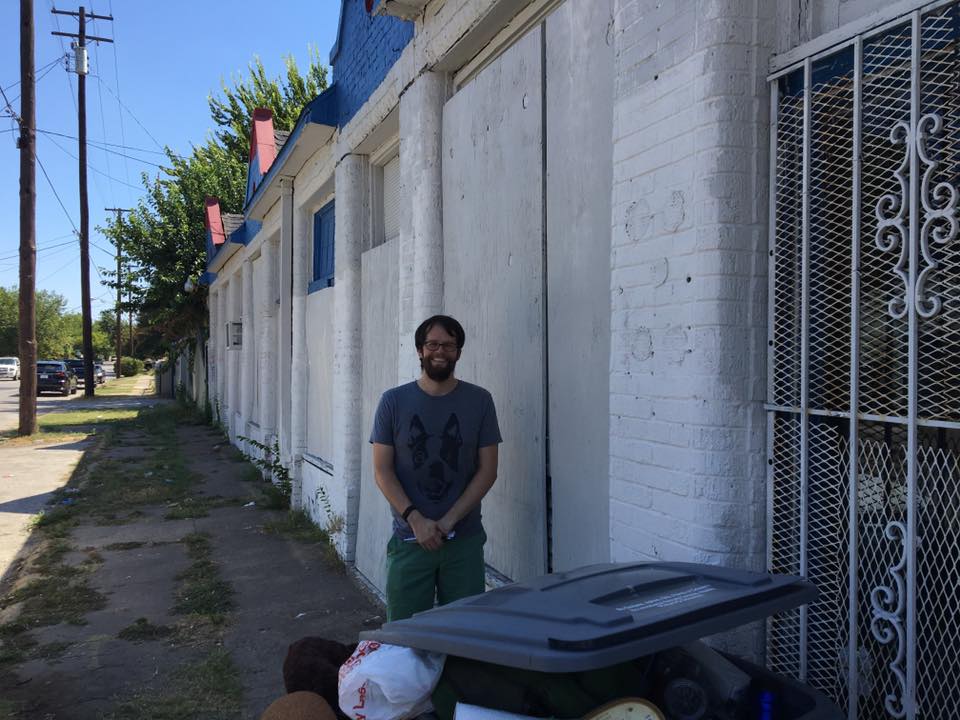


I tend to let too many files accumulate on my computer desktop. As I was clearing out files today I came across the photo above and the text below. As you can see from the photo, we did manage to put on the first boot camp in Duncanville. By the end of 2015 we had done six bootcamps and workshops and launched non-profit to coordinate the effort to cultivate Small Developers around the US, the Incremental Development Alliance (IDA). Next Tuesday, June 7th in Hamtramck, Michigan we will running the 7th event of 2016 the day before the 24th gathering of the Congress of the New Urbanism starts up on June 8th.
In addition to running the one day and three day training events, IDA along with Midtown, Inc has been awarded a Knight Foundation grant to do a deeper diver into the Midtown neighborhoods of Columbus Georgia, providing 18 months of extended training and mentoring for local small developers.
None of this would have been possible without the hustle and hard work of local sponsors and volunteers in each of the cities that hosted us and the ongoing efforts of the IDA staff and board. Strong Towns helped us get started, hosting the boot camp registration for the first couple events on their website. Lynn Richards and the staff at CNU have been tremendously supportive as we continue to figure out how to scale up the Small/Incremental Development Effort. The CNU's Project for Lean Urbanism was the genesis of this entire effort. The time we spent with the Lean Urbanism Working Group exploring what it would take to Make Small Possible made it very clear that we need a new business model for development, That shifting the scale of the development enterprise was going to be critical to building better places. Thank you everyone.
June 5, 2015
Things are moving FAST with the rapidly expanding Small Developer/Builders Facebook group that we set up last April prior to CNU 23 in Dallas.
I have heard from a number of group members via email and phone calls that they would be interested in a hands-on workshop on basic skills needed as a small developer builder. There is an effort percolating to hold a one day workshop for Small Builders in Atlanta the day before the National Town Builders Association (NTBA) Fall Roundtable October 16-18.
But that’s all the way into late October and folks are pressing for something much sooner.
I think we can put this together in the Dallas area rather inexpensively. If the folks attending cover their own travel, lodging and meals, if we can find a venue at modest cost. It could be a very Lean affair. A meet-up with other folks considering or practicing as Small Developer/Builders. Connect with some mentors, roll up our sleeves and get some skills.
Here’s what we are thinking for content:
- BUILDING FOR-RENT VS. BUILDING FOR SALE PROJECTS.
- HOW TO DO BASIC MARKET RESEARCH.
- PRO FORMA BASICS, SORTING OUT YOUR DEAL ON PAPER.
- HOW TO BUDGET FOR HARD AND SOFT COSTS.
- OPERATING EXPENSE BUDGETS AND THE PROPERTY MANAGEMENT BASICS.
- SITE SELECTION – EVALUATE SEVERAL SITES TO FIND THE BEST ONE TO START ON.
- HOW YOUR FINANCING REQUEST LOOKS TO YOUR BANKER.
- NAVIGATING THE APPRAISAL PROCESS.
- HOW TO PITCH A DEAL TO AN INVESTOR.
- DEAL STRUCTURES; ALIGNING THE INTERESTS OF PARTNERS.
- POP-UP RETAIL AND STREET MARKETS; HOW TO CULTIVATE TENANTS (WHEN YOU HAVE NO MONEY).
- UNDERSTANDING FHA LOAN PROGRAMS 203(B) AND 203(K) FOR 4 UNIT PROJECTS.
- DEALING WITH CONSTRUCTION IF YOU DON’T HAVE A CONSTRUCTION BACKGROUND (AND EVEN IF YOU DO).
- COMMON SENSE DESIGN STRATEGIES AND WORKING WITH ARCHITECTS AND ENGINEERS.
- MULTIPLE ON-RAMPS, SCENARIOS FOR HOW TO GET STARTED AS A DEVELOPER/BUILDER.
- A STANDARD 4-PLEX DEAL; ALL RESIDENTIAL OR SMALL MIXED USE BUILDING.
- A STANDARD COTTAGE COURT DEAL.
What other content should we cover?
We are thinking folks would arrive in time for food and drink on Friday evening, leave after lunch on Sunday. We are doing this on August 14-16, Who’s in?

Warning! Planning Geek stuff ahead....
Most state have a law on the books that requires municipalities to adopt a Comprehensive Plan (called a General Plan in California) that will guide local investments in transportation, schools, parks, fire trucks, hospitals, and sewer plants. Once the Comprehensive Plan (Comp. Plan) has been adopted, the municipality is supposed to revise their local zoning codes and development ordinances to bring them in line with the goals and policies of the Comp. Plan. So the Comp. Plan is the big idea, the thoughtfully considered suite of policies that should guide the finer-grained rules and regulations that developers are required to follow if they want to build something.
Here's a common problem. After going through a long string of cathartic public meetings, charrettes, visioning sessions, etc. to prepare the Comp. Plan, Downtown Master Plan, Corridor Plan, etc., the mere mortals that staff the local planning department or sit on the planning commission and the city council are kinda burned out. The unglamorous task of revising the zoning code tends to get delayed or forgotten. Sometimes there is just no money in the budget to get the zoning code revisions done.
If developer shows up proposing a project that is in line with the general policies of the new Comp. Plan but violates the specific rules of the old zoning code, the only path forward is some sort of Planned Development Permit (PD), Planned Unit Development (PUD), or some similar additional process designed to allow greater flexibility that is allowed under the letter of the zoning code. PD's and PUD's require require additional applications, additional review by the planning commission, and typically a public hearing. In the meantime, if someone wants to build some crappy project that violates the policies of the new General Plan, but is specifically allowed under the old zoning code, they could do that as an as-of-right project. That's just bullshit. Imagine how local residents who participated in all those visioning workshops for the Comp. Plan are going to feel when they see that crappy project get built.
I think that putting this statement on the front cover of every Comp Plan to save people a lot of time, money and frustration:
"WARNING! This is a feel good scam. We have no intention of actually changing the rules to allow you to build any of it without special permission and a number of public hearings with local residents who have not read this document."
If your community wants to see the vision of their Comp. Plan actually get built, get serious about changing your zoning code.
